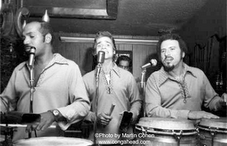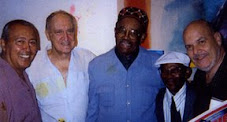
When I was a year old, Mrs. William Randolph Hearst awarded me a medal. Her husband was running for president. The medal was a political gimmick. In order to attract new immigrant voters, Hearst opened “baby milk stations” in poor neighborhoods. So as to win the medal, I was fed high-fat milk until I was morbidly overweight. Since my eyes became slits, I was called “chink,” a derogatory label applied to the Chinese in the twenties. I was a pawn fattened for the slaughter but as I grew older, I accepted it philosophically.
In the mid-forties, the streets of Greenwich Village were empty. “We have it in our power to begin the world over again,” said Alexander Hamilton, years earlier. Wonderful things could have happened to our society with just a lucky shove from destiny. We already possessed a spirit of bohemian rebellion. There existed an attitude of refined curiosity and sly humor. Not having read sufficient history, we lacked wisdom. There was no Chopin or Verdi to compose an anthem, or a Dvorak to lend us more militancy. Our literature was not Jeffersonian. Kafka still amused us, Brave New World was still too upsetting and Orwell was far off. Soon we assembled in Washington Square Park to lay on the grass like self-centered cows. If the forties were at best, witty, then this silly century is a bad joke. We are all obliged to accept its artful, fanciful plastic philosophy, including the counter culturists.
“The last thing we possess is our philosophy,” Anatole Broyard once told me. One day I visited Mother Cabrini Hospital to be with my old friend José “Buyú” Mangual Sr. I casually asked his nurse if she knew who her patient was. She did not. “He is the world’s greatest bongo player,” I said. Buyú’s eyes had been closed all the while I was in his room. He suddenly opened them and with a beatific smile on his face, he closed them for the last time.
In the end, when all is said and done, with music in the air, I want to possess Buyú’s self-confident contentment. His homophonic “philosophy.” Like the masons who built the gothic cathedrals, José spent his life unknowingly building a monument to his own musical genius. His was an enviable finale without the benefit of philosophy.
—Amico sed magis amicus veritas, Plato
 When I was a year old, Mrs. William Randolph Hearst awarded me a medal. Her husband was running for president. The medal was a political gimmick. In order to attract new immigrant voters, Hearst opened “baby milk stations” in poor neighborhoods. So as to win the medal, I was fed high-fat milk until I was morbidly overweight. Since my eyes became slits, I was called “chink,” a derogatory label applied to the Chinese in the twenties. I was a pawn fattened for the slaughter but as I grew older, I accepted it philosophically.
When I was a year old, Mrs. William Randolph Hearst awarded me a medal. Her husband was running for president. The medal was a political gimmick. In order to attract new immigrant voters, Hearst opened “baby milk stations” in poor neighborhoods. So as to win the medal, I was fed high-fat milk until I was morbidly overweight. Since my eyes became slits, I was called “chink,” a derogatory label applied to the Chinese in the twenties. I was a pawn fattened for the slaughter but as I grew older, I accepted it philosophically. 

No comments:
Post a Comment